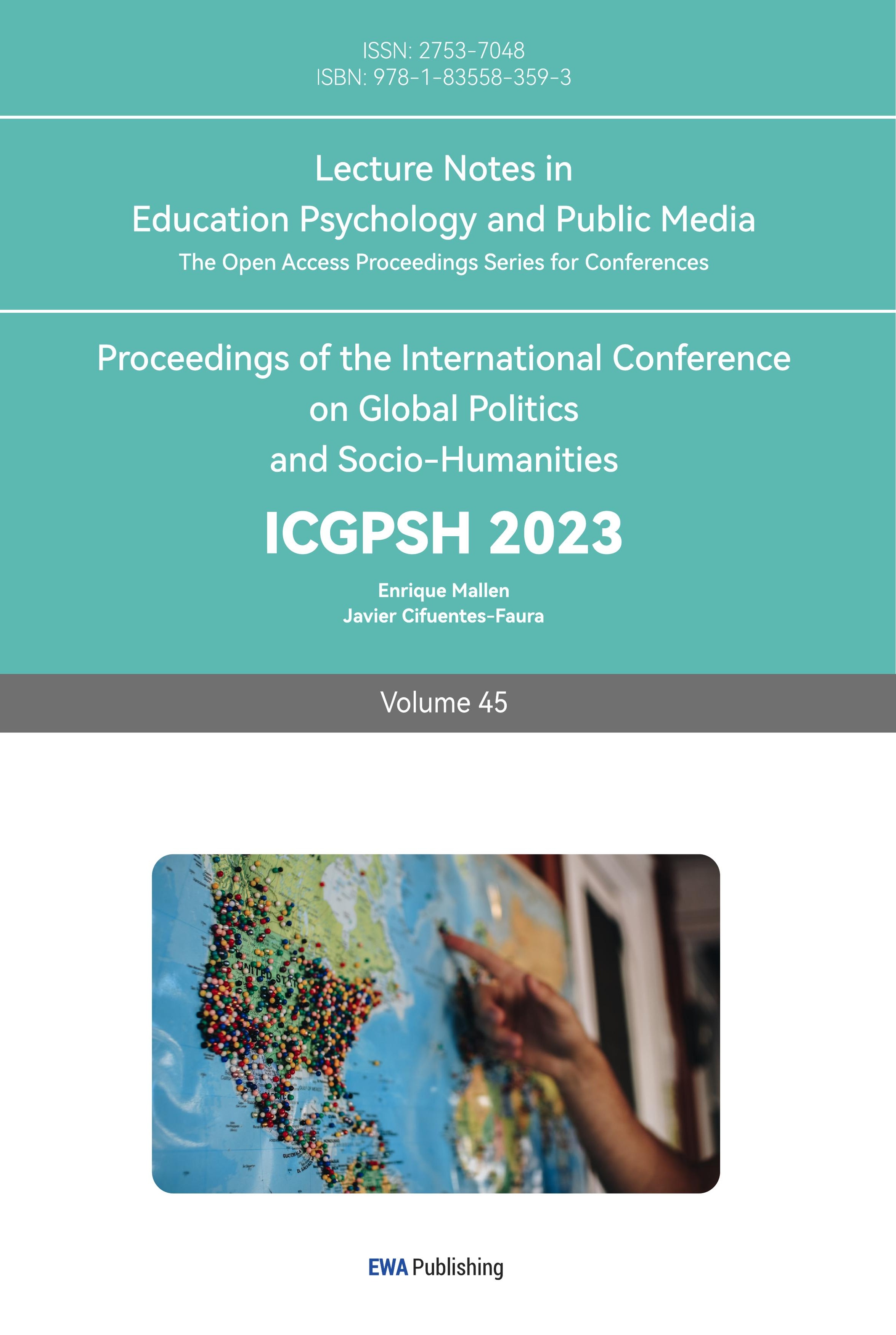References
[1]. Davies, W. M. (2009). Group work as a form of assessment: Common problems and recommended solutions. Higher education, 58, 563-584
[2]. Li, D., Remedios, L., & Clarke, D. (2014). Chinese students’ group work practices and experiences in China. Higher Education,68, 227-241.
[3]. Watkins, R. (2004). Group work and assessment: The handbook for economics lecturers. Economics Network, from http://www.economicsnetwork.ac.uk/handbook/printable/group work.pdf.
[4]. Patterson, A.D. (2019). Equity in groupwork: the social process of creating justice in a science classroom. Cult Stud of Sci Educ 14, 361–381
[5]. Roschelle, J. & Teasley S.D. (1995) The construction of shared knowledge in collaborative problem solving. In C.E. O'Malley (Ed), Computer-Supported Collaborative Learning. (pp. 69-197). Berlin: Springer-Verlag
[6]. Laal, M., & Laal, M. (2012). Collaborative learning: what is it? Procedia-Social and Behavioral Sciences, 31, 491-495.
[7]. Koh, M. H., & Hill, J. R. (2009). Student perceptions of groupwork in an online course: Benefits and challenges. International Journal of E-Learning & Distance Education/Revue international du e-learning et la formation à distance, 23(2), 69-92.
Cite this article
Guan,K. (2024). Challenges in Group Work from the Perspective of College Students. Lecture Notes in Education Psychology and Public Media,45,169-174.
Data availability
The datasets used and/or analyzed during the current study will be available from the authors upon reasonable request.
Disclaimer/Publisher's Note
The statements, opinions and data contained in all publications are solely those of the individual author(s) and contributor(s) and not of EWA Publishing and/or the editor(s). EWA Publishing and/or the editor(s) disclaim responsibility for any injury to people or property resulting from any ideas, methods, instructions or products referred to in the content.
About volume
Volume title: Proceedings of the International Conference on Global Politics and Socio-Humanities
© 2024 by the author(s). Licensee EWA Publishing, Oxford, UK. This article is an open access article distributed under the terms and
conditions of the Creative Commons Attribution (CC BY) license. Authors who
publish this series agree to the following terms:
1. Authors retain copyright and grant the series right of first publication with the work simultaneously licensed under a Creative Commons
Attribution License that allows others to share the work with an acknowledgment of the work's authorship and initial publication in this
series.
2. Authors are able to enter into separate, additional contractual arrangements for the non-exclusive distribution of the series's published
version of the work (e.g., post it to an institutional repository or publish it in a book), with an acknowledgment of its initial
publication in this series.
3. Authors are permitted and encouraged to post their work online (e.g., in institutional repositories or on their website) prior to and
during the submission process, as it can lead to productive exchanges, as well as earlier and greater citation of published work (See
Open access policy for details).
References
[1]. Davies, W. M. (2009). Group work as a form of assessment: Common problems and recommended solutions. Higher education, 58, 563-584
[2]. Li, D., Remedios, L., & Clarke, D. (2014). Chinese students’ group work practices and experiences in China. Higher Education,68, 227-241.
[3]. Watkins, R. (2004). Group work and assessment: The handbook for economics lecturers. Economics Network, from http://www.economicsnetwork.ac.uk/handbook/printable/group work.pdf.
[4]. Patterson, A.D. (2019). Equity in groupwork: the social process of creating justice in a science classroom. Cult Stud of Sci Educ 14, 361–381
[5]. Roschelle, J. & Teasley S.D. (1995) The construction of shared knowledge in collaborative problem solving. In C.E. O'Malley (Ed), Computer-Supported Collaborative Learning. (pp. 69-197). Berlin: Springer-Verlag
[6]. Laal, M., & Laal, M. (2012). Collaborative learning: what is it? Procedia-Social and Behavioral Sciences, 31, 491-495.
[7]. Koh, M. H., & Hill, J. R. (2009). Student perceptions of groupwork in an online course: Benefits and challenges. International Journal of E-Learning & Distance Education/Revue international du e-learning et la formation à distance, 23(2), 69-92.









